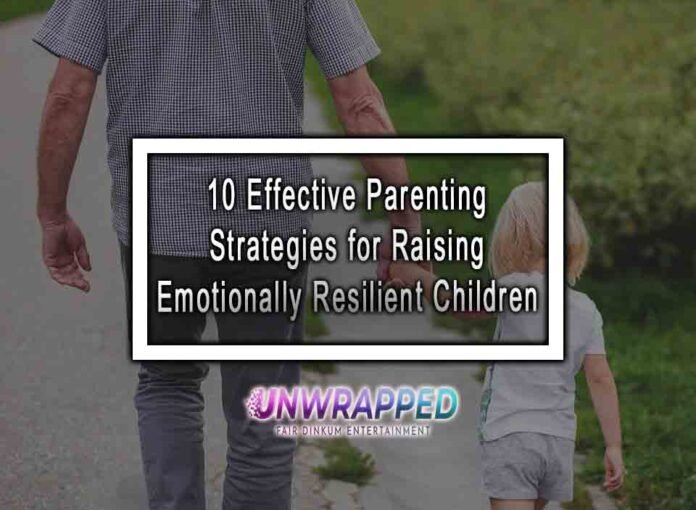Nurturing Little Warriors: Building Emotional Resilience in Kids
Raising emotionally resilient children is a crucial aspect of parenting, equipping them with the tools to navigate life’s challenges. As parents, we have the power to foster resilience in our little ones, helping them bounce back from setbacks and develop strong coping skills. In this listicle, we’ve compiled ten effective parenting strategies that will empower you to nurture emotional resilience in your children. From fostering emotional intelligence to promoting a supportive environment, these strategies will lay the foundation for their future well-being.
1. Encourage Emotional Expression and Validation
Help your child develop emotional resilience by creating a safe space where they feel comfortable expressing their feelings. Encourage open communication, actively listen, and validate their emotions without judgment. This support will teach them that their emotions are valid and help them develop a healthy emotional vocabulary.
2. Teach Problem-Solving Skills
Resilient children are adept problem solvers. Encourage your child to think critically and come up with solutions to their own challenges. Offer guidance and ask open-ended questions that encourage them to explore different perspectives and consider various options. This approach helps foster their problem-solving skills and boosts their confidence in overcoming obstacles.
3. Foster a Growth Mindset
A growth mindset promotes resilience by teaching children to view challenges as opportunities for growth rather than setbacks. Encourage your child to embrace mistakes and setbacks as part of the learning process. Highlight their efforts and achievements, emphasizing that success comes from perseverance and hard work.
4. Provide a Supportive and Nurturing Environment
Create an environment that nurtures emotional resilience by offering consistent support and encouragement. Be an empathetic listener, provide constructive feedback, and offer comfort during difficult times. This supportive atmosphere will help your child develop a strong sense of security and confidence.
5. Teach Emotional Regulation
Emotional regulation is a vital skill for building resilience. Help your child identify their emotions and provide them with strategies to manage and regulate these emotions effectively. Teach deep breathing exercises, mindfulness techniques, or engaging in calming activities such as drawing or listening to music.
6. Encourage Healthy Risk-Taking
Allow your child to explore their interests and engage in age-appropriate risks. Encouraging them to step outside their comfort zone helps build resilience by exposing them to new experiences and challenges. Support their endeavors and celebrate their efforts, regardless of the outcome.
7. Foster Social Connections
Strong social connections contribute significantly to emotional resilience. Encourage your child to build healthy relationships with peers, siblings, and family members. Provide opportunities for social interaction, such as playdates or group activities, and guide them in resolving conflicts peacefully.
8. Model Resilient Behavior
Children learn by observing their parents and caregivers. Model resilient behavior by displaying a positive attitude, adaptability, and perseverance in the face of challenges. Let them witness you navigating setbacks and problem-solving, showcasing the importance of resilience in everyday life.
9. Promote Self-Care and Well-Being
Emotional resilience starts with taking care of oneself. Encourage your child to prioritize self-care activities, such as engaging in hobbies, getting enough sleep, eating well, and exercising. By practicing self-care, they’ll develop healthy habits that contribute to their overall well-being.
10. Foster a Sense of Purpose and Meaning
Help your child develop a sense of purpose and meaning in life. Encourage them to pursue activities aligned with their passions and values. By nurturing their sense of purpose, you’ll instill a strong sense of identity, resilience, and motivation to overcome obstacles they may face.
Raising Resilient Superstars: Building Strong Foundations for Life
Raising emotionally resilient children is a gift that will benefit them throughout their lives. By implementing these ten effective parenting strategies, you’ll provide your child with the tools they need to face adversity, bounce back from setbacks, and thrive in an ever-changing world. Remember, building emotional resilience takes time and consistent effort. As you navigate this journey together, celebrate their progress and remind them of their inner strength. With your guidance and support, they will grow into resilient superstars, ready to conquer life’s challenges with courage and determination.
Inspiring: 10 Effective Strategies for Coping with Mental Health Challenges











